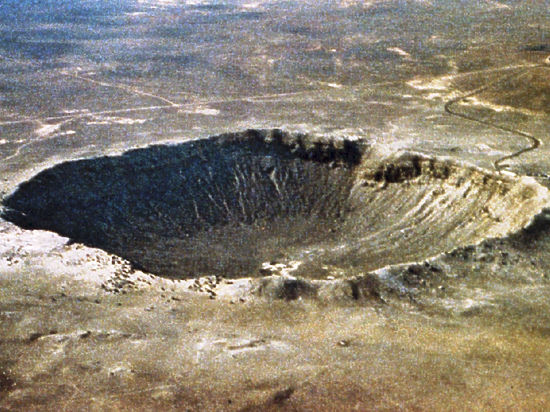In the distant past the conditions for its zarojdeniya could create asteroids
Today at 15:52, views: 3483
Studying the Chicxulub crater that was left from the meteorite that supposedly “killed” the dinosaurs, by scientists from Imperial College London came close to answering some questions about the history of life on Earth. The findings are relevant not for the extinction of a huge number of types, but rather the origin of life. As suggested by experts, that a giant asteroid could create optimal conditions for our planet appeared and developed first organisms.

photo: ru.wikipedia.org
the Chicxulub Crater is located partly on the bottom of the Gulf of Mexico and partly in the North-West of the Yucatan Peninsula. The meteorite that formed the crater fell to the Earth about 65 million years ago, and it is this event that many experts attribute the fact that around the same time with Land lost huge amounts of its at the time of species, including almost all the dinosaurs. The diameter of the crater is about 130 kilometers, and its depth originally reached 1-20 kilometers.
to learn long attracted the attention of specialists of the crater, scientists drilled the bottom of the Gulf of Mexico on 506-1335 meters. As a result, they were able to see the “wall” of the crater and make sure that popular theoretical models describe them is not quite right. The rocks located at the point of impact, was much more porous and less dense than expected. This, according to the researchers, suggests that leave a giant meteor craters are a great environment for living microorganisms — it is easy to “resist” in porous rocks, but the water will penetrate them and to bring nutrients.
On the basis of their observations, the scientists suggested that the craters formed during a meteorite bombardment of the young Earth was like Chiliguru and, therefore, could play a key role in the early stages of formation and development of life.
Experts have published their work in the journal Science.
No comments:
Post a Comment